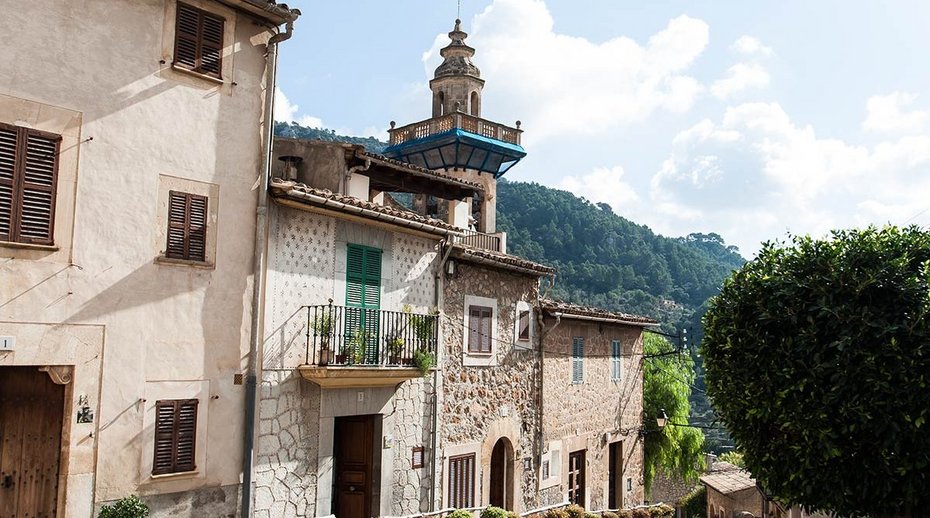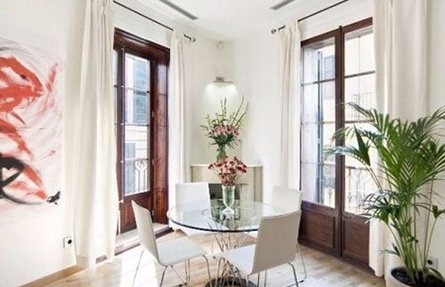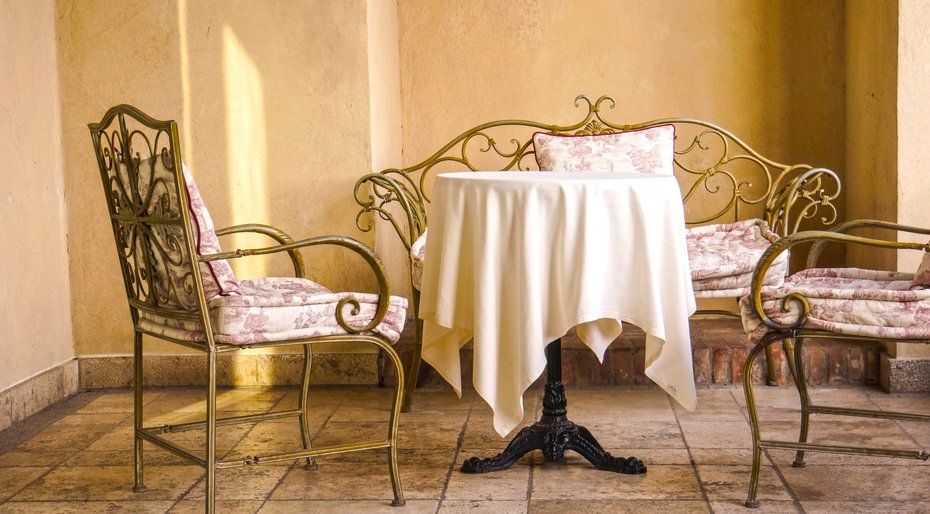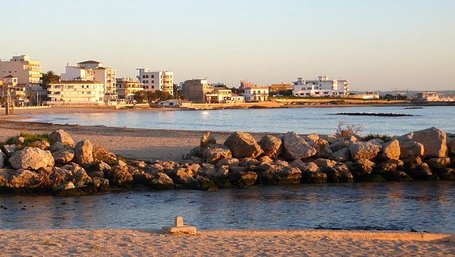
Buying a property in Mallorca: information & tips
Buying a flat in Mallorca can be attractive for many reasons.
Be it that you intend to use the property permanently or temporarily for your own use, or that you are thinking of renting it out as a holiday home. With your own flat, you are independent, have more room for manoeuvre than with a rental property and have a long-term and secure investment.
Contents:
- What are the general things to consider when buying a flat?
- Before buying: A look at the land register and land registry
- Buying a new-build flat
- Buying a second-hand flat
- When buying a flat: One-off taxes and costs
- Annual taxes after buying a flat
When buying a flat, there are also a few aspects to consider, both with regard to a new-build flat and when buying a second-hand property. The purchasing process is associated with additional one-off and regular costs as well as obligations and risks that need to be clarified precisely so that the fulfilment of the dream of owning your own flat does not turn into a nightmare.
Below are some points that you should definitely be clear about before buying.
What should I generally bear in mind when buying a flat?
One reason for buying a flat may be the expectation of lower costs than in the case of a flat to rent. However, it is important to obtain precise information in advance, for example about Spanish tax law and expected costs such as, possibly, service charges. Also check – if you are buying from a private seller – their right of disposal and make sure that there are no outstanding tax debts.
Equally, insist on an individual contract instead of a standard form contract and invest in a notary to draw up a notarial purchase contract (escritura pública de compraventa), in which all agreements are recorded in detail. Clarify your obligations as an owner as well as any special usage rights, e.g. with regard to cellars, storage rooms, gardens and, above all, the roof terrace, as the latter is often used as a selling point but is not a private terrace but "only" a communal terrace. If you have not yet applied for a Spanish tax number (número de identificación fiscal para extranjeros, or NIE for short), do so in good time, as you are obliged under Spanish tax law to submit your tax returns independently and on time. Furthermore, the NIE is required for the correct registration of your flat in the Land Registry.
Before buying: look at the land register and cadastre
When buying both a new and a second-hand flat, it is essential to check both the registration in the Land Registry (registro de la propiedad) and its reference with the Cadastre (referencia catastral) and compare them with the actual situation. Here it is important to know that the Cadastre and the Land Registry are separate institutions in Spain. Accordingly, the existing entries may also differ from each other and have different levels of up-to-dateness, so you should definitely check both.
The Land Registry entry is not only helpful when acquiring entire plots of land, but also when buying a flat. It must be checked whether the living area is correctly stated and whether debts or encumbrances are registered for the property in question. These can be an indication of matters that must be clarified before signing the contract so that you, as the buyer, are not later held liable for entries for which the previous owner is responsible.
The registration of the title deed in the Land Registry also provides additional legal certainty and, when reselling the flat, is the official proof that you are the owner of the flat. The information in the Cadastre serves, for example, as the basis for the annually payable property tax and income tax, so it is definitely advisable to be informed here. If corrections and adjustments to the entries need to be made, it is also advisable to arrange this in good time and, if possible, to place it under the responsibility of the seller.
Buying a new-build flat
The quality of the building fabric and modern fittings can be decisive advantages of a new-build flat. If you want to buy such a residential property for these reasons, you should definitely find out in advance about a valid building inspection - granted by the responsible municipality - as well as a certificate of occupancy. If there is a community of owners involved, you should find out about possible obligations as a co-owner of the community and ensure whether and what costs will come your way from this direction.
You will usually purchase a new-build flat from a developer or a trading company acting as a legal entity. In this context, Spanish sales tax or value added tax (impuesto sobre el valor añadido, or IVA for short) is due. Its amount for flats is 10%, since the tax rate was adjusted in 2012. Attention: Not yet completed residential properties - as well as building plots, by the way - are even taxed at 21% IVA. This tax is levied centrally and must be paid to the central tax office accordingly.

Older flats can sometimes be found in more attractive and central residential locations than new-build properties. However, there are also a few points to consider here. Especially when buying an older flat, i.e. a second-hand purchase, the seller will very often be a natural person. Then, instead of the previously mentioned VAT (IVA), the property transfer tax (impuesto sobre transmisiones patrimoniales, or ITP for short) is payable. Unlike IVA, it is a regionally levied tax, the amount of which is determined by the respective autonomous regions of Spain and can therefore vary. In the Balearic Islands, a tiered system currently applies. Depending on the assumed market value of the property (i.e. not the purchase price!), the property transfer tax is thus between 8 and 11%.

When buying a home: one-off taxes and costs
In addition to the previously mentioned VAT or property transfer tax, there are a number of other one-off taxes that must be considered as additional costs when buying a flat.
Particular caution is required with the capital gains tax (impuesto municipal sobre el incremento del valor de los terrenos de naturaleza urbana, commonly known as plusvalía). This tax is calculated from a number of parameters such as the duration of previous ownership, the land value and the population of the responsible municipality. The plusvalía is fundamentally to be borne by the seller – this is established by law! However, attempts are often made to transfer this payment to the property buyer in the purchase contract. Therefore, this should definitely be clearly formulated in the contract. If you agree with the seller that you will take over the payment of the plusvalía, then have its amount calculated in good time before signing and notarising the contract to avoid any unpleasant surprises.
When buying a new-build flat on which IVA has to be paid, the Stamp Duty / Stamp Duty Land Tax (impuesto sobre actos jurídicos documentados, or AJD for short) is usually also payable. In Mallorca, it amounts to 1.2% of the property value and is paid regionally, i.e. in this case to the Balearic Islands as an autonomous region of Spain.
In addition, when buying a flat, the corresponding registry fees as well as the fees for the lawyer and the notary who notarises the purchase contract are of course also incurred.
Annual taxes after the purchase of a flat
For owning a residential property in Spain, you will have to pay annual taxes. Details depend on whether you are resident, i.e. spend more than 183 days per calendar year in Spain, whether you have your economic centre of interest in Spain or whether you have a spouse and/or dependent children in Spain. In this case, you are subject to so-called unlimited tax liability.
If you use your flat yourself, you have to pay annual income tax (impuesto sobre la renta de personas físicas, or IRPF for short). The amount of this tax is based on the cadastral value – a fictional use value of currently 2% of the cadastral value serves as the basis, on which 24% income tax is payable. This is another reason why it is important to be informed about the registered cadastral value.
If you rent out your residential property, income tax is also due. However, part of the rent may be exempt from taxation depending on the case. It is worth consulting an expert.
In addition, the wealth tax (impuesto sobre el patrimonio - IP) is payable, which is calculated on a tiered basis based on the purchase price of the property. The municipality also levies the property tax (impuesto sobre bienes inmuebles or IBI for short), the amount of which – as already mentioned – is calculated based on the cadastral value.









